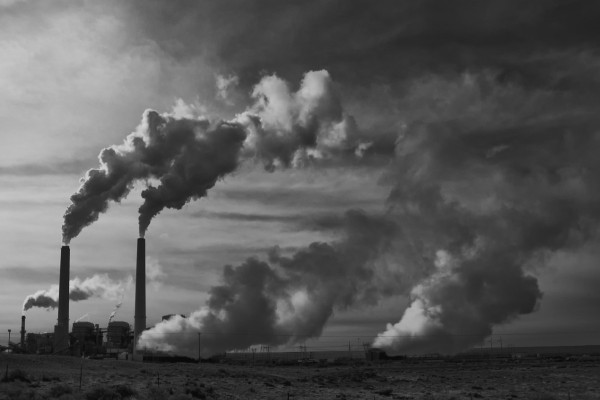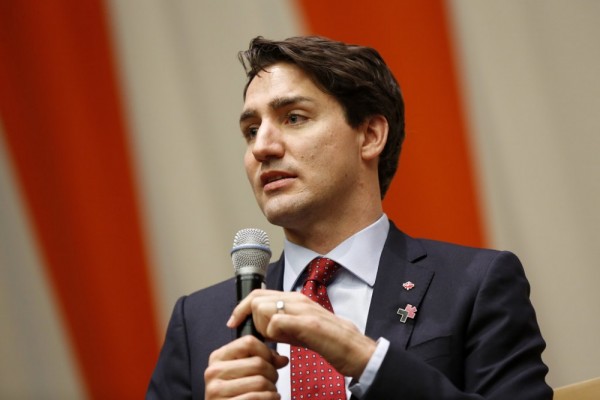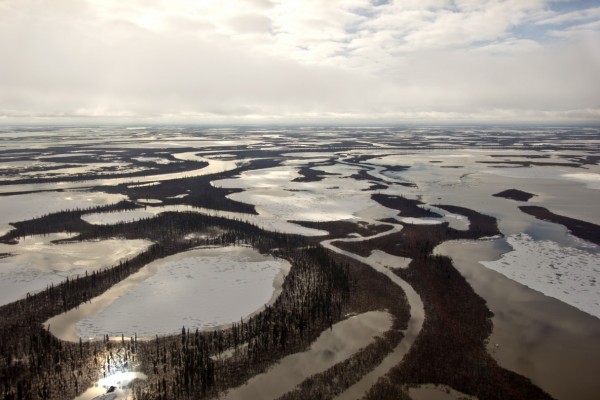Québec solidaire defines its political priorities

Gabriel Nadeau-Dubois and Manon Massé, elected spokespeople for Québec solidaire. Photo from Twitter.
The pandemic has changed how civil society operates, making it difficult to function democratically. The strictures on holding rallies and demonstrations not only make it harder to exert popular pressure, but also limit interaction between activists and undercut any sense of cohesion. This affects the Left’s ability to agitate and educate, and gives more political weight to neoliberal institutions and political parties. For Québec solidaire (QS), the pandemic has also resulted in a scaled back parliamentary presence.
A major challenge right now for Québec’s left party is to refocus public attention on climate change and the environment as an essential part of the solution to the crisis and of any vision of genuine social transformation. This was the primary issue for QS during its last election campaign and it was an action priority for the party prior to the pandemic, but it is also a determining factor in how the party is positioning itself on Québec’s political stage at the current time.
Toward the end of November, QS held an online meeting of its National Council, the highest decision-making body between party conventions, in which all the riding associations participate through delegates elected at local meetings. At this meeting, the members confirmed their desire to put opposition to GNL Québec—a liquid natural gas project—at the top of their list of priorities, along with opposition to pipelines, LNG ports and shale gas exploration and development.
A Léger poll commissioned by several environmental groups, such as Eau Secours, Équiterre, Greenpeace and Nature Québec, showed that 54 percent of respondents do not want governments to provide financial support for the project. In addition, in its 2020 report on liquefied natural gas projects, the International Gas Union expressed doubts about the political viability of the GNL Québec project: “A strong headwind of anti-fossil fuel activism in Québec makes this project’s success unlikely,” notes the group. The Conseil Régional de l’Environnement et du Développement Durable du Saguenay-Lac-St-Jean, a non-profit organization devoted to sustainable development in the region where the project is planned, has also added its voice to those of the 160 scientists, 250 doctors, 40 economists, 101 professors and lecturers at the Université du Québec à Chicoutimi, and to those of the more than 40,000 citizens who oppose this project, which involves both a liquid natural gas plant and a 750 kilometres pipeline to transport the gas for export.
At its November National Council meeting, Québec solidaire also adopted an anti-austerity resolution, calling on the government not to make any budget cuts until the next election in 2022. More specifically, Québec solidaire is asking the Coalition Avenir Québec government led by François Legault to reinvest substantially in public services, beginning with its next budget. QS wants to see this investment financed by new revenues from taxes on sectors that have been largely unaffected by the pandemic, such as large corporations, web giants, major polluters and the wealthiest taxpayers. QS is proposing the introduction of a pandemic tax, a tax on high net worth individuals and new eco-taxes that target the most polluting companies.
Another noteworthy issue that was discussed at the National Council meeting was a motion, stemming from a report by the party leadership, to withdraw accreditation from the Collectif laicité, a group dedicated to promoting support for laïcité within the party. Revoking a group’s accreditation is not something to be taken lightly and it was important to reemphasize the right to dissent within the party and to protect the legitimacy of groups representing minority opinions.
In fact, the collectifs were originally created to allow the different political currents that had come together to found Québec solidaire to continue to exist and be recognized within the new party. Over the years, different groups of members formed a variety of collectives to promote their political perspectives inside QS. In the case of the Collectif laïcité, there were complaints from several riding associations as well as from a number of members who accused the group of betraying the party’s values by promoting exclusionary practices aimed at members of ethno-cultural communities. Among other things, in 2018, the Collectif took a public stand against the right of candidates running for election to wear the hijab in the official photo and in parliament if elected. This position was detrimental to QS’s efforts to advocate for an inclusive society and was seen as targeting one QS candidate who wore the hijab. In the eyes of many QS members, the Collectif was sending a hostile message to people who were already experiencing social exclusion. The majority of delegates to the National Council agreed that the Collectif laïcité had contravened the party’s values and withdrew its accreditation.
Also on the agenda was a discussion of internal party democracy, an issue that is particularly salient these days, given the substantial growth in QS’s membership during the 2018 election campaign and the significant increase in the size of the caucus from three to 10 MNAs.
The committee tasked with examining questions of democracy tabled a report containing some 60 proposals, including the creation of a horizontal communication tool for use among the riding associations and among members. A code of ethics and a conflict prevention and resolution policy are also being drafted. There are also efforts underway to assist marginalized groups who have fewer opportunities to make their voices heard or to challenge unfair behaviour directed towards them. The results of the committee’s work will be submitted to the next National Council in May 2021.
QS members have also begun preparing for the 2022 election campaign and in that context they adopted a proposal submitted by the party’s Indigenous Commission to translate the next electoral platform into the 11 Indigenous languages used in Québec. The party’s creation of an Indigenous commission last year, and the wide support for the ambitious plan to translate the platform into almost a dozen Indigenous languages, reflects QS’s constantly growing awareness of and sensitivity to Indigenous realities and concerns.
Translated by Andrea Levy.
André Frappier is a regular contributor to CD and a member of the magazine’s coordinating committee. He also serves on the editorial board of the online weekly Presse-toi à gauche and has been a member of the FTQ Montréal Labour Council for many years.










